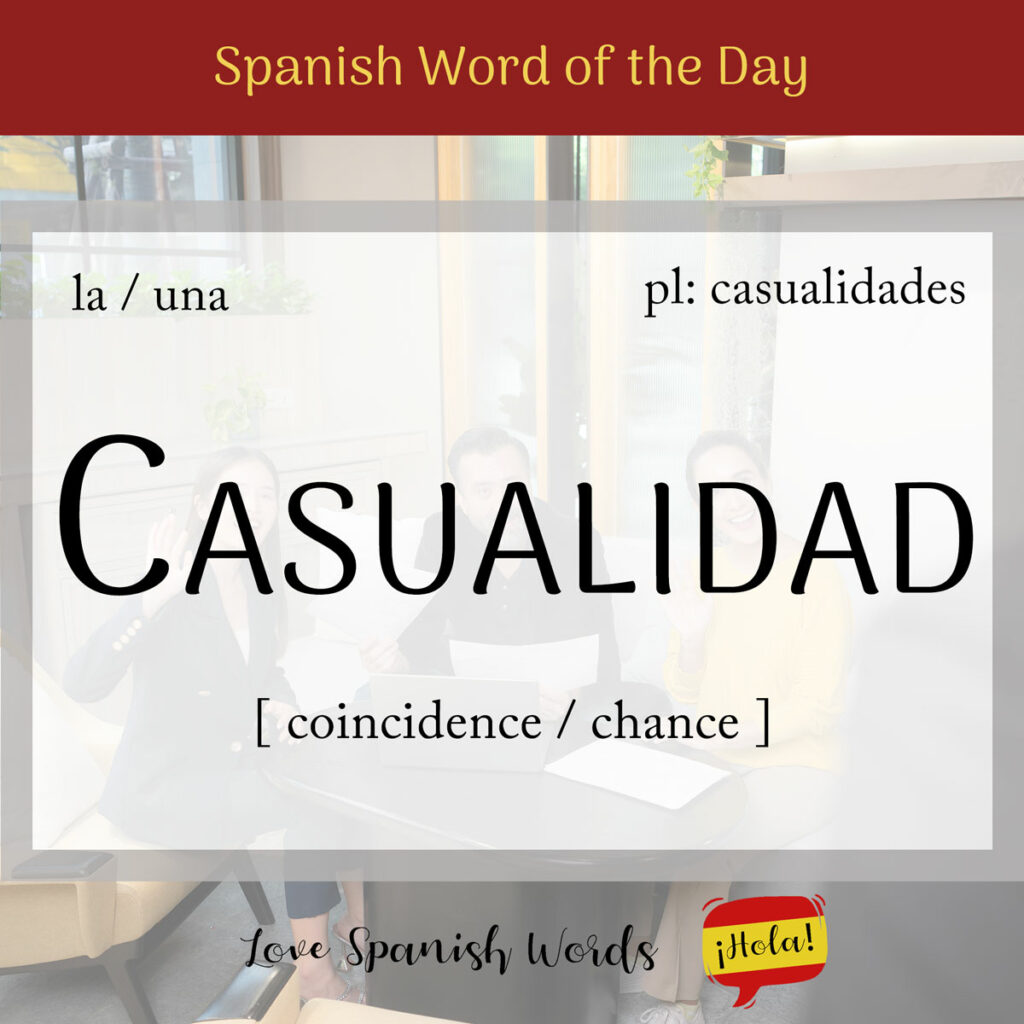Do you believe in fate? When something happens at the same time as something else by accident we call that a coincidence. In Spanish, the word for coincidence is casualidad.
Latin American Pronunciation
European Pronunciation

The word casualidad comes from casual, from Middle French casuel, from Medieval Latin casualitas and Late Latin cāsuālis meaning “happening by chance.”
Being a feminine noun, casualidad takes the following definite and indefinite articles:
- la casualidad = the coincidence
- una casualidad = a coincidence
- las casualidades = the coincidences
- unas casualidades = some coincidences
Creo que fue casualidad que Marco y yo nos encontráramos.
I think it was fate that Marco and I met.
A synonym for casualidad is coincidencia, with the difference being that casualidad carries a much stronger sense of chance, luck or fate than coincidencia, which tends to refer to accidents. Some other synonyms include azar (fate), suerte (fortune), and accidente (accident).
And there are a couple of antonyms: previsión (foresight / precaution) and destino (destiny).
If you want to say something has happened by chance or coincidence, you can use the phrase por casualidad or de casualidad. By pure chance translates to por / de pura casualidad.
Por pura casualidad entramos al bar al mismo tiempo.
By pure coincidence we walked into the bar at the same time.
The phrase da la casualidad de que equates to the English it just so happens that.
Da la casualidad de que mis amigos son muy famosos.
It just so happens that my friends are very famous.
A useful expression when you want to exclaim What a coincidence! is ¡Qué casualidad!

To conclude, let’s listen to this upbeat song by Pedro Capó and Sofia Reyes called, you guessed it, Casualidad.

